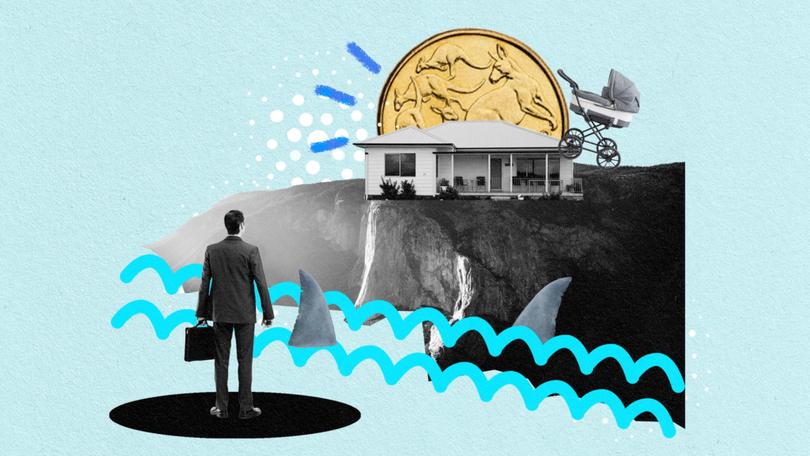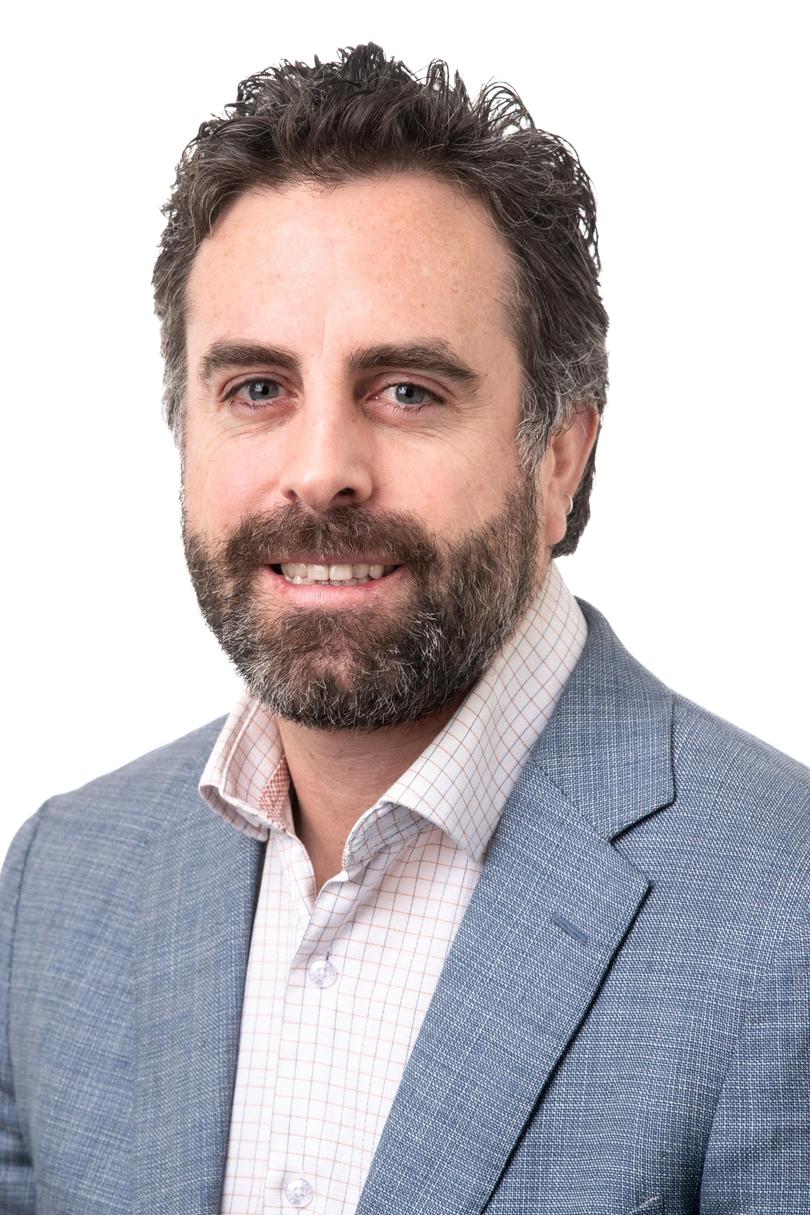The Limbo Generation: Hustling millennials trying to have it all amid unprecedented economic pressures
THE LIMBO GENERATION: Millennials are ‘caught between the dream and reality’ of their lives, facing more obstacles than any generation before them.

The current housing crisis and cost of living pressures mean hustling millennials are “caught between the dream and reality” with their prospects only predicted to worsen in 2025.
Experts say this cohort, born between 1981 and 1996, have had a run of bad economic luck when it comes to the timing of milestones and goals most people expect to achieve by the time they turn 40.
In a series of interviews with leading Australian demographers and sociologists about what it is like to be the national median age of 38, housing security has emerged as the most pressing issue for millennials today.
Sign up to The Nightly's newsletters.
Get the first look at the digital newspaper, curated daily stories and breaking headlines delivered to your inbox.
By continuing you agree to our Terms and Privacy Policy.Sociologist and demographer Brendan Churchill says the Great Australian Dream is slipping further out of reach for many in their late 30s who are in the “rush hour of life” and desperately “trying to do it all”.
“A 38-year-old is probably someone who is past the starting point in their career, thinking about a family, thinking about buying a house and probably thinking ‘how am I going to do this or have it all?’” he said.
“It’s a kind of messy time for 38-year-olds who are, in a sense, still relatively young but there are all of these expectations.
“You’re supposed to have your career, home and family sorted.
“Things feel frenetic and sometimes kind of disorderly because there are all of these things going on.”
Next year millennials — also known as Generation Y — will be aged between 29 and 44.
Dr Churchill, senior Lecturer in Sociology at the University of Melbourne, says this cohort are “caught between the dream and the reality” with unrealistic expectations about what adulthood should look like.
But Dr Churchill — a 39-year-old himself — said the idea and reality of reaching your 40s are wildly different.
“When I was 21, my conceptualisation of someone in their late 30s and early 40s is completely different to the actual reality of it,” he said.
“I thought that someone who was 38 would be firmly established in their career, paying off a mortgage and having a child but … I don’t have a home or a child and part of that is because of life circumstances but also because it took so long to establish a career.
“I did a PhD and it was really hard to get a job and all of those things are very reflective of what other millennials my age have experienced.”
Many millennials are heading into middle age — that is, their 40s — with unrealised dreams.
“Millennials have taken a bit of a beating in the labour market and it hasn’t been as smooth sailing … as they probably thought it would be after they graduated or finished their qualification,” he said.
It was rough coming up in the shadow of the Global Financial Crisis and then we’ve had Covid, the cost of living crisis and now we’re in a housing crisis.
“I don’t want to do the typical millennial ‘woe is me’ story but I do find some truth in that, particularly in my day-to-day experiences as a 39-year-old.
“In a sense, you always feel like you’re catching up.”
Dr Churchill’s current research is focused on the changing nature of work and employment for young people, including those with “side hustles”.
“Young people are now having to get second and third jobs, partly because there are fewer labour market opportunities and partly because people don’t want to have to work in ways that are confining or constraining,” he said.
“They want to do things they’re passionate about and things they like so they turn to side hustles as a way to get themselves out of those situations.
“They have the mindset that they need to create opportunities for themselves because the opportunities that were there for their parents are not there for them.”
As a result, millennials are the “ultimate hustlers”.
“I think being 38 in 2024 has been this mentality of you have to do it all, and to do it all, you have to hustle,” Dr Churchill said.
“You have to create opportunities because no one else will help you.
“It’s hard to get a house deposit and it’s hard to raise children, so you have to hustle.”
The financial pressure most millennials are under also means they can’t disconnect, resulting in “work-life bleed”.
“Work comes home with you. Especially in a post-COVID era, there is no physical separation,” he said.
“Your emails never turn off so we’re more available and reachable than ever.
“We can be contacted at any time of the day. You can even be contacted on your watch.
“I think this is very characteristic of our age in that there are not enough hours in the day to get things done, which is making people feel very harried and stressed.”

His University of Melbourne colleague Dan Woodman, who studies generational change and the new social conditions impacting young adults, said millennials are coping with the pressures they face, but barely.
“For this cohort of 38-year-olds today, they haven’t exactly been the luckiest cohort in terms of the timing of various transitions, but they’ve done OK,” he said.
“They were actually finishing school and starting on their career trajectories and adult life during the end of the GFC and the downturn … when the labour market didn’t look so great.
“When you do have a tough start, you see evidence of it that follows people well into the life course.
“It’s not like life is ruined but it takes the edge off how much you’re earning at different stages.”
Professor Woodman is a chief investigator on the Life-Patterns Project, which is a longitudinal study that follows approximately 1000 Australians from the end of secondary school into middle age.
Prof Woodman said one of the cohorts the project has been following for the last two decades will turn 37 in 2025.
“If we go back to the baby boomers’ generation, people were buying their houses in their mid-20s, whereas for the first home buyers in this group, they’re mid-30s,” he said.
“They’re either trying as hard as they can to still get in (to the property market) or they’ve got big mortgages.
“After that slightly slower start, they hit this cost of living crisis at a key age where interest rates and other things really smash this age group.”
Prof Woodman said millennials are also having children later in life than previous generations.
“People are having kids further along the life course. Some 38-year-olds don’t have any kids, some have kids that are getting a bit older, but there are a lot that have that newborn through to primary school age,” he said.
“As a cohort, they are a group that is very interested in climate change and they’re still worried about the future for their kids, and what the broader future of Australia and the world will look like, but everyday pressures are pretty primary at the moment.
“It is about just being in the rush hour of life, feeling a bit busy and burnt out, and things feeling very expensive.
“They are getting close to where midlife crises start to hit, so some people start to reflect on things, but they are also just dealing with the everyday pressures of life at the moment.”
And all of these pressures are having an impact on millennials’ mental health.
“They have had some mental health pressures their entire life but they … might be ramping up,” Prof Woodman said.
“Even though the world has changed so much, there’s still very much a sense of 40 is an age in which you should have things together so the pressure is on for that.
“Becoming an adult has to do with independence but for this cohort … it’s been tough.”
At the end of the day, millennials need more government support if their lives are to become more affordable and manageable.
“Housing and childcare are too expensive,” Dr Churchill said.
“The government is trying to make efforts on paid parental leave, which helps, but that’s only for the first year of a baby’s life.
“Most of a 38-year-old’s income goes to housing costs and childcare would be the next biggest expense.”
Millennials who thought life might get easier in their 40s were possibly mistaken.
“I think there will be people who are happy they’ve made it to 40 and reached some kind of milestone.
“But I think there will be 38-year-olds who are only starting to pay off a mortgage and will still have young kids in their 40s. I’m sure many won’t be retiring at 60.
“I would sum up being 38 in Australia today as having lots of unrealised dreams but a lot of expectations.”

